A blizzard that started on Thursday night has paralyzed transportation in northwest China's Xinjiang Uygur Autonomous Region, stranding thousands at railway stations, airports and on highways.
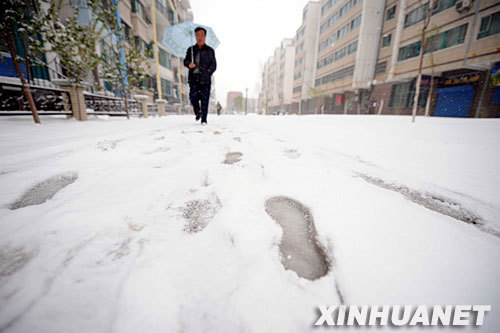
A resident trudges home on a snow-covered road marked with deep foot prints, Friday, April 18, in Urumqi, northwest China's Xinjiang Uygur Autonomous Region. [Photo: Xinhua]
Railway authorities said eight passenger trains were unable to leave Urumqi, the regional capital, on Friday, including trains bound for Korla in central Xinjiang, Hami in the east, Aksu in the west and Kashi in the south, and three inter-provincial trains to Nanjing, Chongqing and Chengdu.
The Urumqi railway station opened 12 windows on Friday for passenger refunds. Previously, 2,162 tickets were sold on the eight trains, said Tang Qingshan, an official at the station.
High wind and heavy snow began to affect mountainous areas in northern Xinjiang at 8 p.m. on Thursday and in some areas, wind were more than 100 kilometers per hour.
"We were stranded for seven hours and ended up with no water," said Li Demo, who took a night train from Kashi to Urumqi on Thursday.
The train returned to Korla on Friday morning to refill its water tanks after being stranded overnight in Hejing County as a result of high wind and low visibility. It's not immediately known when it will leave Korla.
The meteorological bureau has forecast continued wind and snow in most parts of Xinjiang through Sunday. Gusts are forecast to top 117 km per hour in some areas along the railways in southern Xinjiang.
The cold snap also delayed or canceled more than 120 flights at the Urumqi Airport on Friday, including services to Islamabad, Bishkek in Kyrgyzstan and 13 domestic cities including Beijing, Shanghai and Guangzhou.
Airport workers spent hours on Friday morning trying to clear runways and a few regional flights took off early in the afternoon. But airport authorities warned at least 70 other flights would be affected on Friday as the snowstorm continued.
The foul weather also closed many highways in southern Xinjiang, and at least 50 buses were stranded on the key highway linking Urumqi with Shanghai.
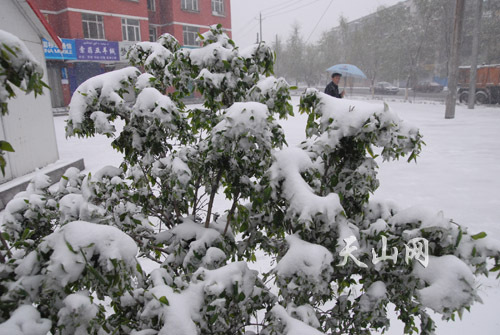
Tree branches weighed down by heavy snow on Friday, April 18, in Urumqi, northwest China's Xinjiang Uygur Autonomous Region. [Photo: tianshannet.com]
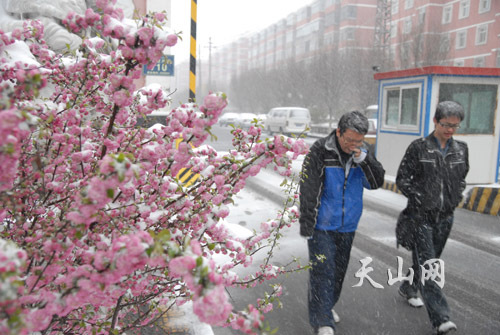
Snow-capped peach trees in full blossom stand by the roadside, Friday, April 18, in Urumqi, northwest China's Xinjiang Uygur Autonomous Region. [Photo: tianshannet.com]
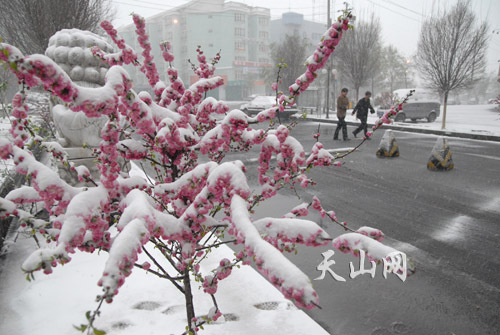
Snow-capped peach trees in full blossom stand by the roadside, Friday, April 18, in Urumqi, northwest China's Xinjiang Uygur Autonomous Region. [Photo: tianshannet.com]
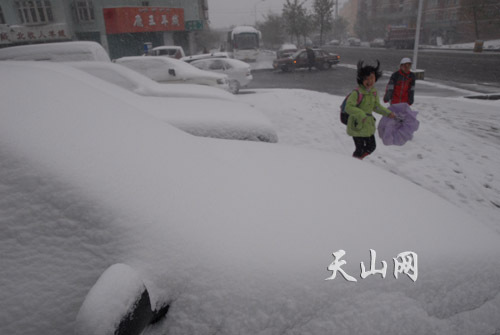
Cars blanketed with heavy snow on Friday in Urumqi, northwest China's Xinjiang Uygur Autonomous Region, after a blizzard struck the city on Thursday night. [Photo: tianshannet.com]
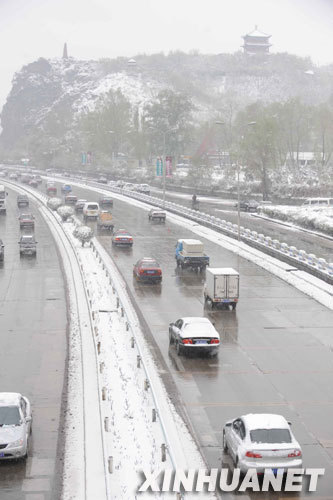
Vehicles slowly move along a slippery road on Friday in Urumqi, northwest China's Xinjiang Uygur Autonomous Region, after a blizzard struck the city on Thursday night. [Photo: Xinhua]
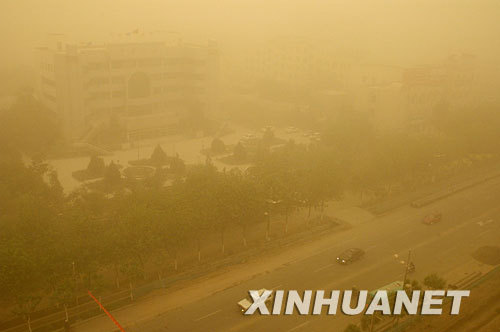
Turpan, northwest China's Xinjiang Uygur Autonomous Region, is hit by a heavy dust storm Friday, April 18. [Photo: Xinhua]
(Xinhua News Agency April 19, 2008)